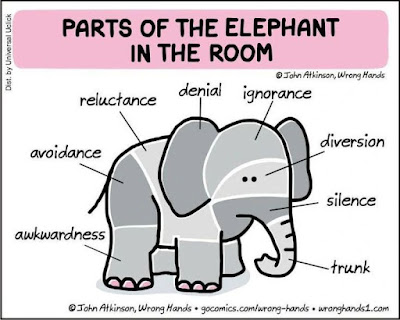In Teamwork, silence isn't golden - it's deadly!
- Mark Sanborn
The importance of getting teams aligned and running smoothly is a key differentiator for an organization's success and tends to give leaders a headache especially when deadlines are missed or quality is less than desired.
I put out this poll on LinkedIn a few weeks ago. See the screenshot below on what the poll contained and what people chose.
Some background - Through the past few decades, the most popular models in conflict management were the Thomas Kilmann model and Patrick Lencioni's 5 Dysfunctions of a Team. The first model describes clearly one's possible behaviours during a conflict, and the second model identifies what are causes of poor performance in teams.
So when I have covered the topic of 'Conflict Resolution' or 'Conflict Management' during my Leadership / Managerial Development (or as a stand-alone topic) workshops, both these models have helped the participants get a better grasp on managing and resolving conflicts.
The fact is that all four options are important for teams to deliver performance. Some of my musings on these options:
Trusting Each Other - What exactly are we trusting each other person to do? Also trust is built over time, and is quite a fragile thing. It needs constant repetition, like breathing, if it's going to be of use for a team.
Knowing Each Others Strengths - It's important, no doubt. How are the strengths being appropriately leveraged by the individual and the team to deliver success.
Clear Goals are Defined - An extremely critical point that speaks of alignment of the team members to the goals. What's needed post this is actual performance, guidance and flexibility to enable the team to reach the goal - while leveraging strengths, building trust, managing errors and so on.
Manage conflicts effectively - For high performance, the teams will have to work and resolve conflicts quickly. Why? because any conflict can consume humungous amounts of time. A conflict doesn't start out as a conflict, but mostly as a disagreement or a difference of opinion or a personality clash. So it's actually consuming time from a previous date. Now we also know (but often forget), time is our most precious resource. Added to this is the amount of emotional energy invested from the initial disagreement to the conflict in progress, by all parties trying to convince the others that they are right. These tend to become crucial or difficult conversations, which will consume further time and energy to getting the parties to agree to a particular course of action or thought.
If team members are busy proving that they're right, they don't have time to build trust, get aligned to clear goals, or take the time to know each other's strengths. As a result, performance will suffer.
The above quote is a reality throughout life, whether personal or professional (irrespective of the industry / organization culture). Not every disagreement deserves a battle or a war.
Therefore, the faster the team is able to resolve their conflicts effectively, the quicker they are on their way to delivering high performance. You definitely wouldn't want silence, no matter how golden, coming from your team.
Please get in touch with me at ryanbbarretto@hotmail.com or +919820155778 for workshops and coaching on enabling your teams to work effectively together.















